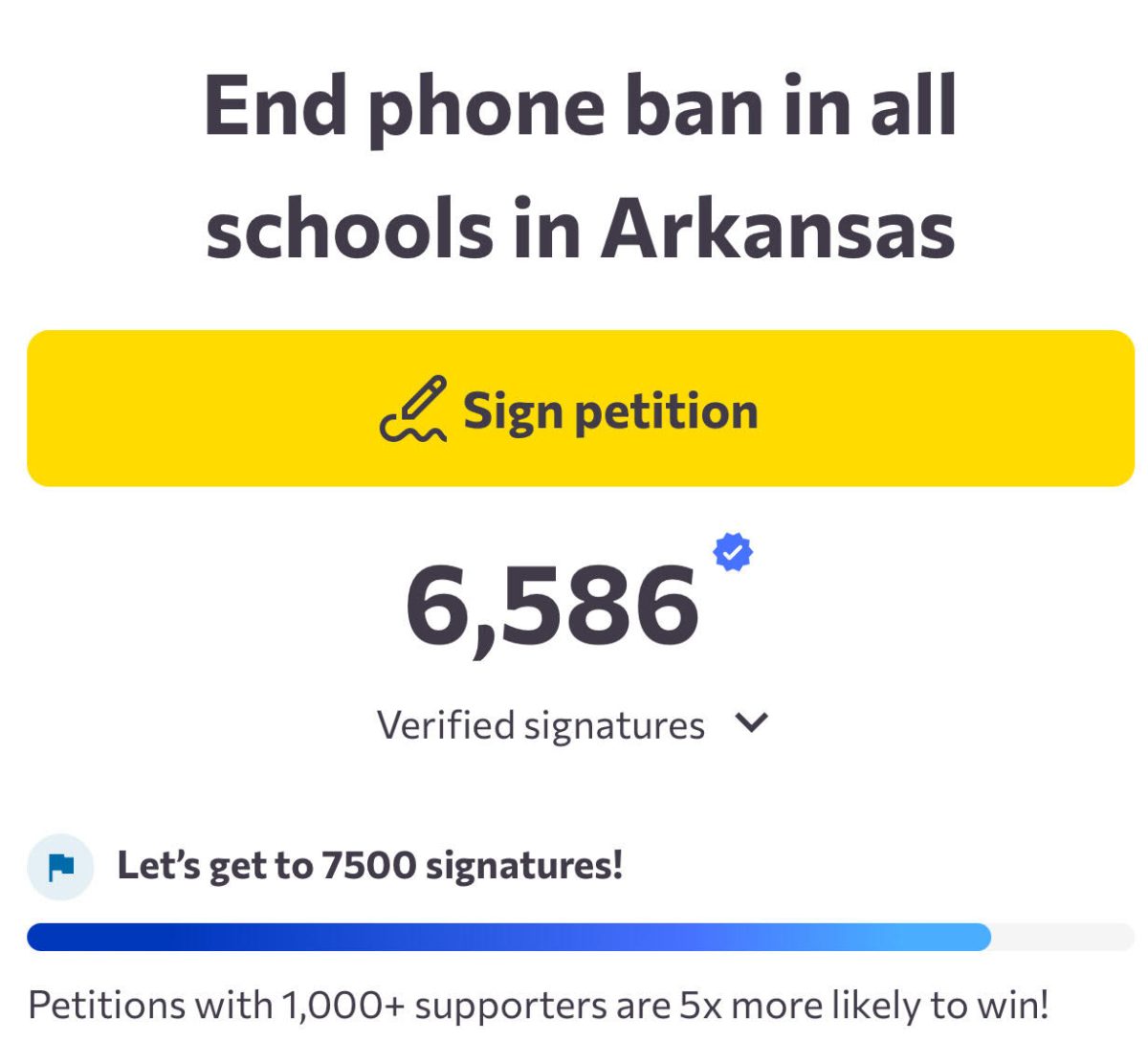What began as an effort to decrease distraction and increase focus in classrooms, has opened dangerous doors and closed off the most critical lines of communication.
The ‘Bell to Bell, No Cell’ act, effective this 2025-2026 school year, has gained mass amounts of attention from Arkansans, as well as severe criticism from some parents and students. This law is not only active in Arkansas, but in 18 other states in the U.S. as well, and while some students around the country are opposed to the law, some educators are in favor of it.
“I feel that it is necessary for the sole reason of making class participation increase. It’s a must for learning. The students need to be more present or mentally in the room,” said substitute teacher Kelly Swanson.
This law does not only ban cell phones, but all personal devices. All public school students are required to use a school-issued chromebook, as well as remove smartwatches and airpods. Some schools have even gone as far as requiring the use of Yondr Pouches, which require a magnet to unlock a personal device.
When going to school in the U.S. is getting increasingly more dangerous, this proves a serious threat to our lifelines. Cell phones are a tool of accountability and safety, not a threat to education.
“This new ban has brought out a lot of anxiety for me, I don’t like not being able to readily and quickly access my parents, friends, or family in case of an emergency,” said Zander Huskey, 11. “It provides a lot of safety risks for students, and as well as teachers, especially with there being no cameras in our classrooms, we now have no way to back up our claims if something were to happen.”
The ‘Bell to Bell, No Cell’ act came into place when Gov. Sanders was inspired to launch the law after reading a book called “The Anxious Generation” by Jonathan Haidt. Though many blame cell phones for this generation’s extreme levels of anxiety, studies show that this is due to a variety of factors including increased economic pressures like debt and rising living costs. Gen Z has grown up in a time of significant global change and unrest due to the weight of recent events including the pandemic, political polarization and violence. It’s no wonder the most widespread coping mechanism for this generation is digital escape.
“I think for me at least, I have a lot more anxiety now and I think that goes for a lot of students. I know a lot of people who keep their phones on their person for a sense of security, a sense that was stripped away,” said AP psychology student, Charlie Comelekoglu, 11.
Some students across Arkansas have started taking matters into their own hands and making their voices heard. Many petitions to alter or end the cellphone ban have started after the bill was enacted, quickly gathering mass amounts of signatures in a short period of time.
SaVion Cooley, the creator of one of the many phone ban petitions, said, “This law places an unfair burden on students to mute a key part of our modern lives, especially in a rapidly changing world. Instead of a total ban, I propose a compromise that balances focus with freedom so we can stay engaged academically without sacrificing our safety or connection.”
This new ban is only one of the many things that contribute to the idea that the voices of students are continually ignored when it comes to their education. Once again, order and authority take priority over student well being and concerns.
“There’s no action with inaction. We can talk about it all we want, how it’s so upsetting and inconvenient, but nothing’s going to change if we don’t take that step forward,” said Huskey.







